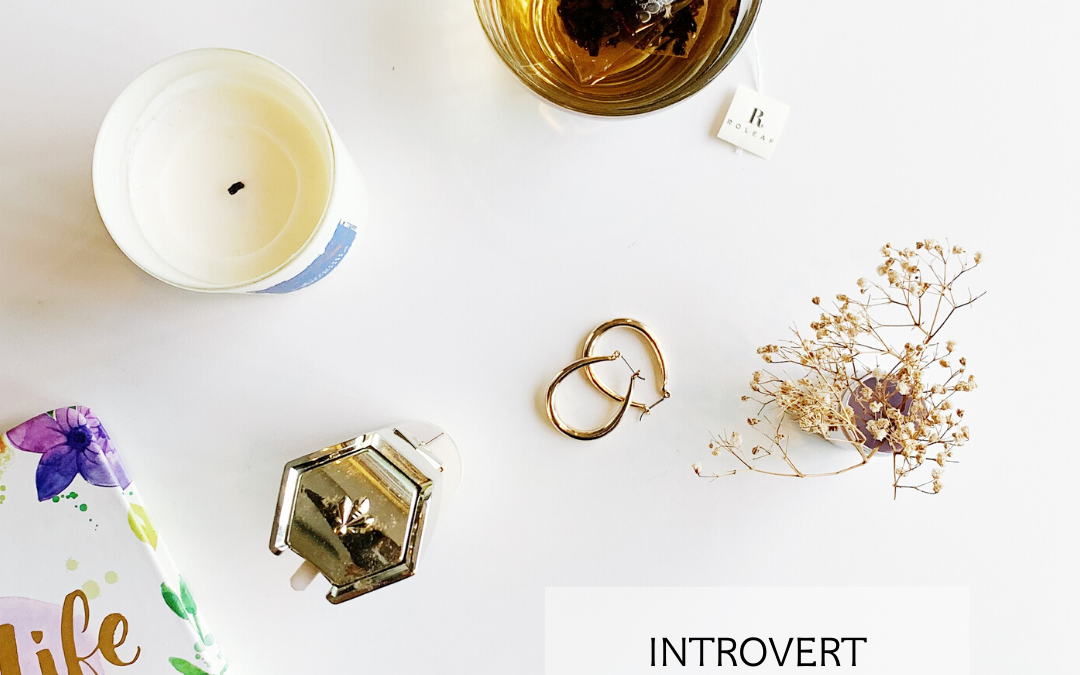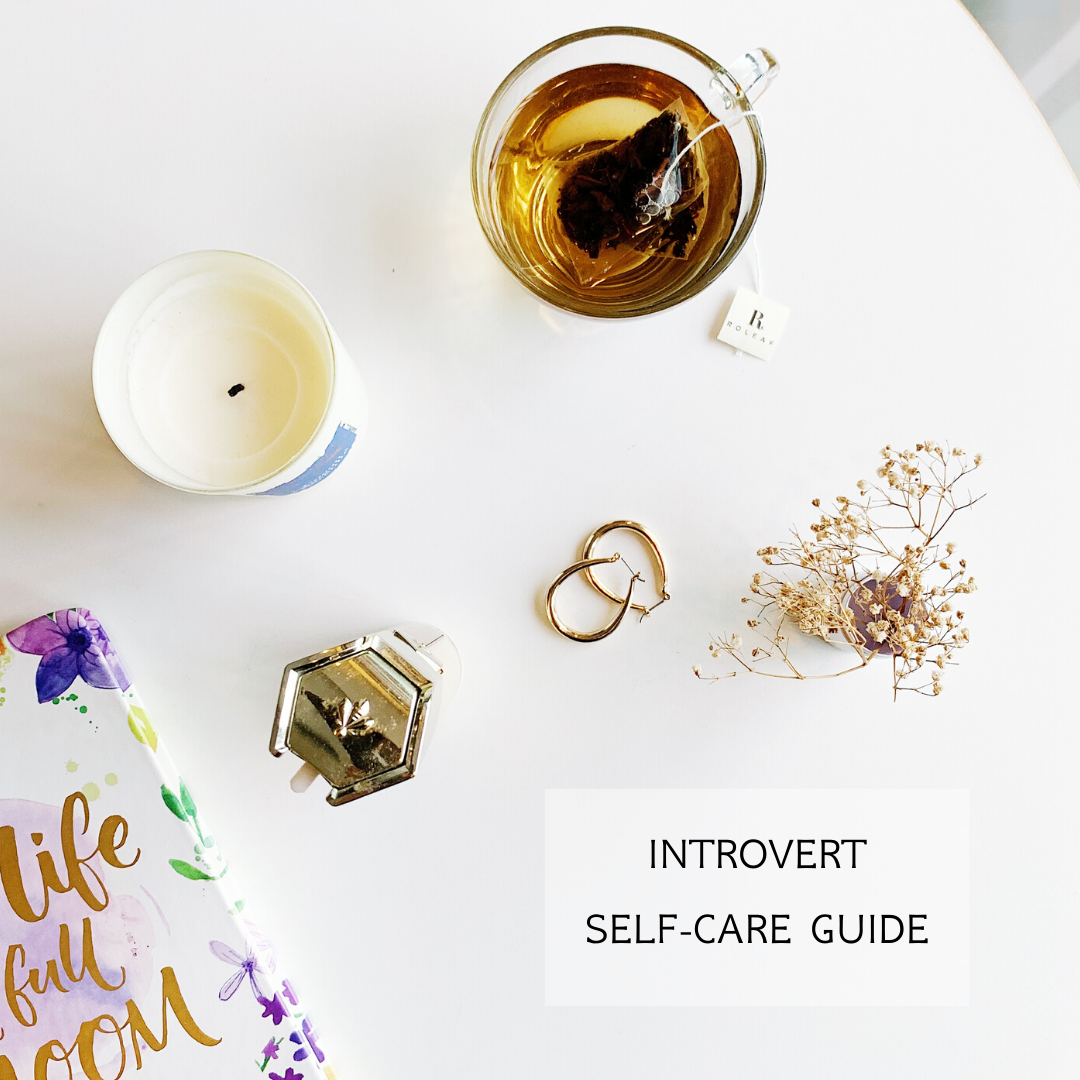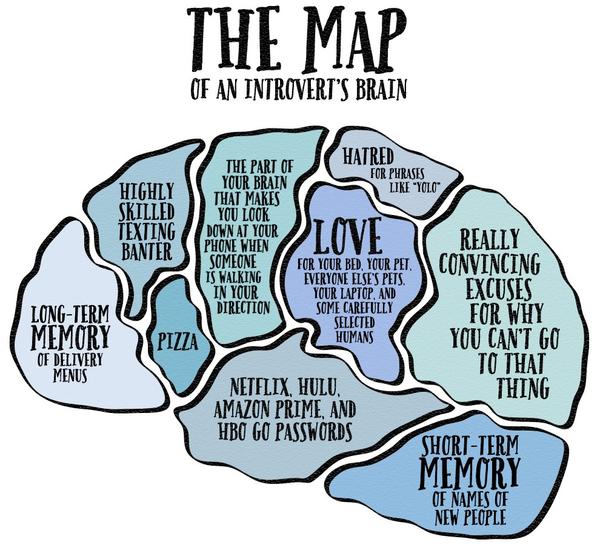Tea as a beverage comes in many varieties, each with its own unique flavour profile and health benefits. To get the most out of your tea, it’s essential to brew it correctly. Whether you’re brewing black, green, white, or herbal tea, following the right steps can make...

Introvert Self-Care Guide
Are you an introvert and easily overwhelmed in social situations?
Do big noisy crowds turn you off and leave you feeling exhausted?
Do you prefer a pleasant evening alone at home to opposed to mingling with strangers at your local bar? Chances are you most probably identify as an introvert.
Today’s world very readily celebrates the natural traits of the extrovert. Our cultural and work values are largely built upon the norms of the extrovert – which can sometimes leave introverts struggling to cope.
Introversion and extroversion are neither good nor bad in themselves. People are just wired differently, and they have different mechanisms of relating with the outside world, which work well in some circumstances and not so well in others.
But with the right steps, an introvert can just as easily flourish in today’s largely extroverted world. Here are some self-care tips:


Meaning of an Introvert
Being an introvert is more than whether you are shy or not. In fact, that is a large misconception that all introverts are shy hermits. Shyness is a behavior – it is being fearful and tense in a social situation. However, you’ll find that most introverts are actually very socially adept butterflies. At own given time and pace of course.
So what makes an introvert so different from their more outgoing counterparts? It all begins in the brain. The brain chemistry of an introvert is very different from that of an extrovert, and a lot of it has to do with the neurotransmitter dopamine – which controls the reward system in the brain.
Now while the levels of dopamine are similar in both an introvert and extrovert’s brain, the way they respond to it is different. The activity of the dopamine reward network is significantly more active in the brain of an extrovert. Put an introvert and an extrovert in, say, a fun rock concert, and the extrovert will buzz with an enthusiastic rush of good feelings.
The surrounding stimuli, however, will cause the introvert to feel over stimulated, due to the intense overload of brain circuitry. This is when the introvert will start to crave quiet time alone, or in a less overwhelming environment in order for their brains to cool down.
Pleasure of an Introvert
The brain of an introvert responds better to a different neurotransmitter – acetylcholine. Acetylcholine is also linked to the reward system, but the only difference is that it is released when one turns inward. This neurotransmitter empowers our abilities to think deeply, reflect and be creative. This is why introverts prefer quieter environments – it is easier to engage in their inner life when the outside is calm.


Healthy Boundaries
Don’t feel bad for drawing lines. You don’t have to attend to everybody’s requests and needs all the time. Establish firm boundaries that will help you preserve your energy. Set apart a few hours for alone time each day. Know that it is okay to say no to social invites. You don’t have to be a hermit, but neither do you need to feel compelled to say yes to everything and everyone.
Calming Routine
A large part of what makes an introvert feel drained is due to the overstimulation of their brains. In happenstances like these, search for ways to unwind and reduce stress levels. Make a cup of warm chamomile tea. Diffuse some lavender essential oil. Take a long calming bath. Play some soft, sweet music. Journal or read a good book. Do whatever you can to relax.
Read: 6 Habits that Help You to Sleep Better
Physical Activity
You would be surprised what an hour or two of exercise can do to calm your mind and boost your energy levels. If the gym scene isn’t your thing, find a quiet park to take a walk. Exercise is often the most underutilized form of therapy.
Read: 5 Steps to Kickstart a Healthy Lifestyle
Personal Space of an Introvert
You don’t have to fly away to a desert island to get away from the noise. Establish a personal haven, a proverbial “dark room” so to speak, and make sure it is off limits to the outside world. This should ideally be a quiet place where you can sit, think, reflect, or even sleep. It can be your bedroom, a quiet spot in the park or a private corner in your office.
And there you have it! Remember, self-care is not selfish. Dear introverts, never feel bad for making sure you are at your best emotionally.

Written by
Related Guides
Related
Essential Tips for Brewing the Perfect Cup of Tea
Experience the Best of Coffee and Tea at Coffee Carnival Kuala Lumpur
The Coffee Carnival Kuala Lumpur is happening this 4th December, from 11am to 8pm at ROM 8 by Metal Bees, bringing together the best of the coffee world for an exciting celebration of craftsmanship, innovation, and knowledge. One of the main highlights of the event is...
Health Benefits: Sip Your Way to Wellness with Roleaf Tea
Tea, a beverage with various health benefits, beside a comforting ritual. From boosting your immune system to calming your mind, the variety of teas available today can offer a natural, holistic way to enhance your well-being, and a powerful addition to your wellness...

